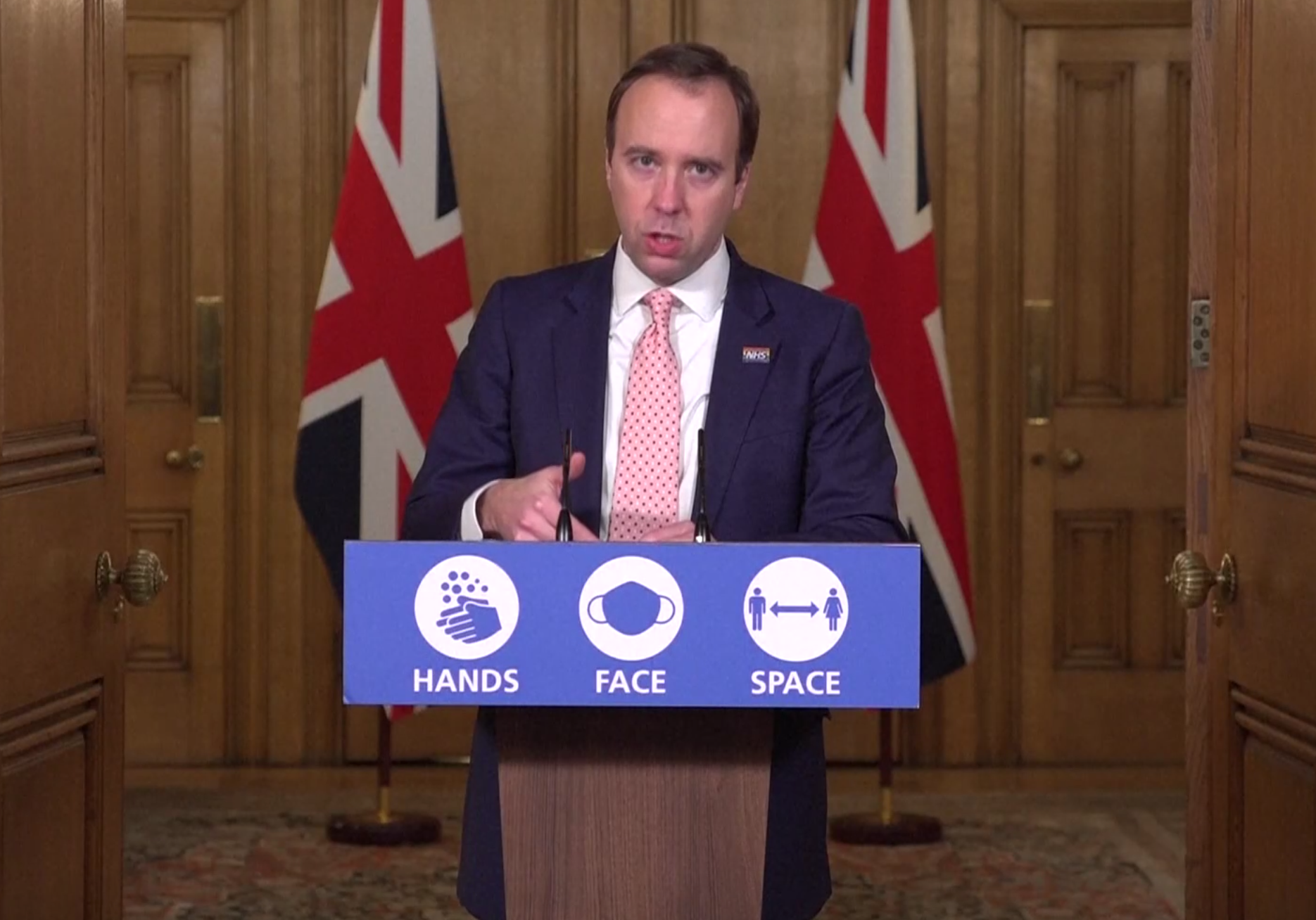It is time to reconsider the Christmas ‘amnesty’ scheduled for the UK
Editorial: As London goes into tier 3, more and more hospitals and independent experts are expressing realistic concerns about the prospect of a third wave hitting hard-pressed health services in the new year

The decision to move Greater London, with parts of Essex and Hertfordshire, into tier 3 just days before the scheduled national review is a matter of concern for the whole country. For, as has been all too clear over the months of this pandemic, no part of the land, no matter how green and pleasant, can consider itself immune from Covid.
Much of the lobbying by MPs and others to move their constituencies to a lower tier is one of the many illustrations of a tendency to parochialism that has characterised the debate, as the localisation of response has spread.
The health secretary, Matt Hancock, is wise to move rapidly in London and the southeast because the coronavirus, or a variant of it, seems to be spreading even faster than the original strain. More than ever, there is no time to waste, and it is reassuring that the scientists at Porton Down have identified the genome of the new variant, and that it seems the vaccine will still work. The bigger problem, of course, is that the vaccination programme will be complete by Christmas 2021, not in a fortnight’s time.
The second wave is growing strongly in and around the capital, but the situation has also deteriorated sharply in Wales, even as it has subsided in, for example, Liverpool and Yorkshire. The trend has also been upwards in Germany, the Netherlands and Italy, where a tougher national lockdown going into the Christmas holidays has proved necessary.
It is time to reconsider the Christmas “amnesty” scheduled for the UK. More and more hospitals and independent experts are expressing realistic concerns about this, as well as the prospect of a third wave hitting hard-pressed health services in the new year.
The rules are a little unclear, though this time they are at least consistent across all four nations of the UK. But, as ever, the tendency for families and friends will be to bend the rules when organising parties at home or going out – as some recent high-profile cases prove. Of course, imposing a more severe lockdown around Christmas may end up being ignored or, worse, discrediting the whole push to ask people to take personal responsibility. Still, the evidence is that, even after the Dominic Cummings affair, most people comply with official requests, if only out of self-interest.
It is still the case that a third of Covid cases are asymptomatic, especially among the young. Christmas gatherings of different generations are an obvious channel for spreading the virus, which never takes a day off or honours any amnesty. As Chris Whitty, the chief medical adviser for the UK, memorably put it, just because you can do something because the rules permit it, such as meeting at Christmas, doesn’t mean that you should necessarily do so. Having parties under the Christmas rules is not “safe”; it merely manages risk. It does not mean, as Dr Whitty tries to remind us, that it is OK to give granny a hug if you’d like to see her again next Christmas.
It really is just another day at the office for Covid-19; an obvious point, but one that should give cause for pausing Christmas plans, whatever the government eventually decides to do, possibly in a panic.



Join our commenting forum
Join thought-provoking conversations, follow other Independent readers and see their replies
Comments